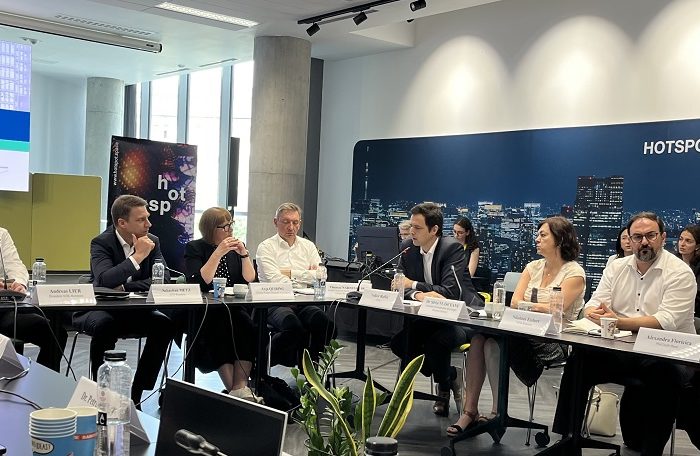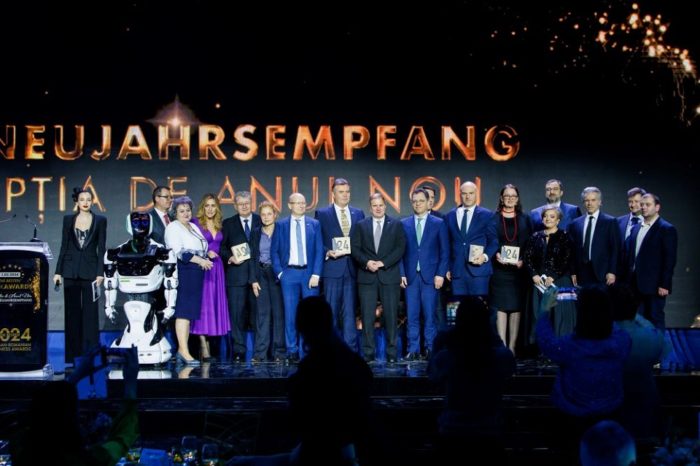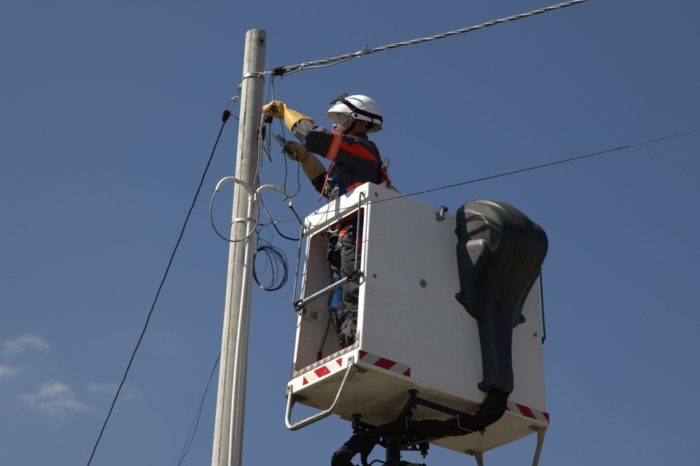Competitiveness – part of the development strategy for the Romanian-German business environment in 2025

AHK Romania member companies put competitiveness, along with employees and their skills, at the center of their concerns. The business environment considers the European theme to be essential to face the challenges of global markets and to develop sustainably.
This is why AHK Romania, together with its member companies, has chosen the concept of “People. Skills. Competitiveness” as the motto to guide their activity throughout 2025.
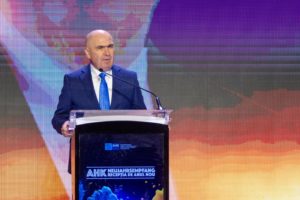
“With our annual theme for 2025, People. Skills. Competitiveness, we emphasize the central role of employees in the success of a company, because their skills represent the central pillar for strong, competitive and innovative companies,” said the General Director of AHK Romania, Sebastian Metz, at the opening of the New Year’s Reception. Present at the event both as President of the Senate and as “a supporter of strong economic and cultural relations between Romania and Germany,” Ilie Bolojan noted that German investments in Romania are an essential component for the country’s economic development.
“Germany is our main trading partner and one of the largest foreign investors in our country,” said Bolojan. The Senate President mentioned the need to continue collaboration in other areas, such as education, research, digitalization, for a better integration of young people into the labor market and promised the support of the Government and Parliament for dual education projects, following the successful model initiated by the Romanian-German Chamber of Commerce.
“Romania has proven in recent years that it can take rapid steps towards modernization when there is a clear vision and an efficient administration. Whether we are talking about infrastructure, education or economic development, success comes where well-thought-out decisions are made and implemented without delay. This is the working model that we must extend at the national level: to focus on concrete solutions, to eliminate bureaucratic blockages and to create an environment in which investments can thrive,” concluded Ilie Bolojan. The idea of change was also continued by the Minister of Education, prof. univ. dr. Daniel David, who emphasized the need to train the future workforce on sound foundations.
Therefore, he invited the private sector to be the ministry’s partner in reforming the educational system, both for university and pre-university education, especially dual: “Our children must be exposed to the best specialists, whom they can meet through the internship opportunities you offer. We opened universities to include the criteria and needs of companies in master’s and postgraduate programs, in order to train the human resources you need. In dual education, mutual responsibility is even greater: together we make the curricula, together we make the assessments and then we are responsible for what we put on the market”, explained David.
Competitiveness is an asset that the Romanian state also needs, believes Deputy Prime Minister and Minister of Finance, Tánczos Barna.
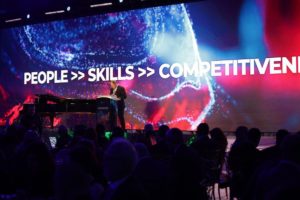
“Just as people in companies must be efficient, those who work for the state must be equally efficient,” Tánczos said, adding that the state has an obligation to provide quality services and reduce its expenses. The Minister of Finance mentioned in this context that the budget approved by Parliament the day before “is a leaner state budget, with spending cuts to streamline operations, an investment budget, with a record amount allocated for investments of over 150 billion lei, and a budget for support programs for companies.
“The Minister of Finance also said that for a performing economy, the active population needs to be more involved in production, and the government will work on this issue as well. The Ministry of Labor, Family, Youth and Social Solidarity and the Ministry of Economy, Digitalization, Entrepreneurship and Tourism were also represented at the event. The two ministers present, Simona Bucura-Oprescu and Bogdan Ivan, respectively, conveyed the message of the ministries they lead to the Romanian-German business community. The theme of competitiveness as a basis for increasing economic efficiency and overcoming current challenges is found in all areas of activity, from food to energy.
Thus, the president of AHK Romania, Andreas Lier, stated that “we want to use the potential of the entire energy sector, especially renewable energies, to increase efficiency. We will also focus on the development of value chains in the food sector. At the same time, challenges such as high labor costs, fiscal predictability and the trade deficit remain in the spotlight, because we believe that a competitive economy needs a modern administration”.
The Ambassador of the Federal Republic of Germany, Dr. Peer Gebauer, stressed the importance of the partnership between Romania and Germany and the good collaboration between the two countries, especially in the field of energy and the expansion of energy infrastructure. For these changes to take place, competent people are needed: “2025 will be a year of transformation. We embrace this motto, we need people, their skills, which will be more and more diverse in the future, we need a spirit of innovation and a willingness to take risks”, said the ambassador.
With over 850 participants, the New Year Reception offered this year’s guests a perfect setting to interact, to make their company known and to find partners or start new business initiatives. In addition to speeches in a festive setting and networking, the event also had several musical moments. The violins and piano of the Parfenov Duo added an extra charm to the entire business evening.
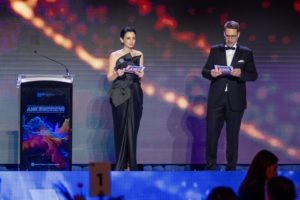
Organized annually at the Palace of Parliament, the AHK Romania New Year’s Reception is a landmark event for Romanian-German business in our country and brings together numerous guests from business people, public administration, professional associations, civil society, as well as from the political, diplomatic, academic and media environments.



